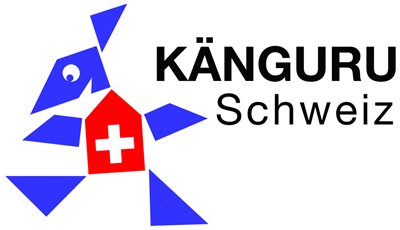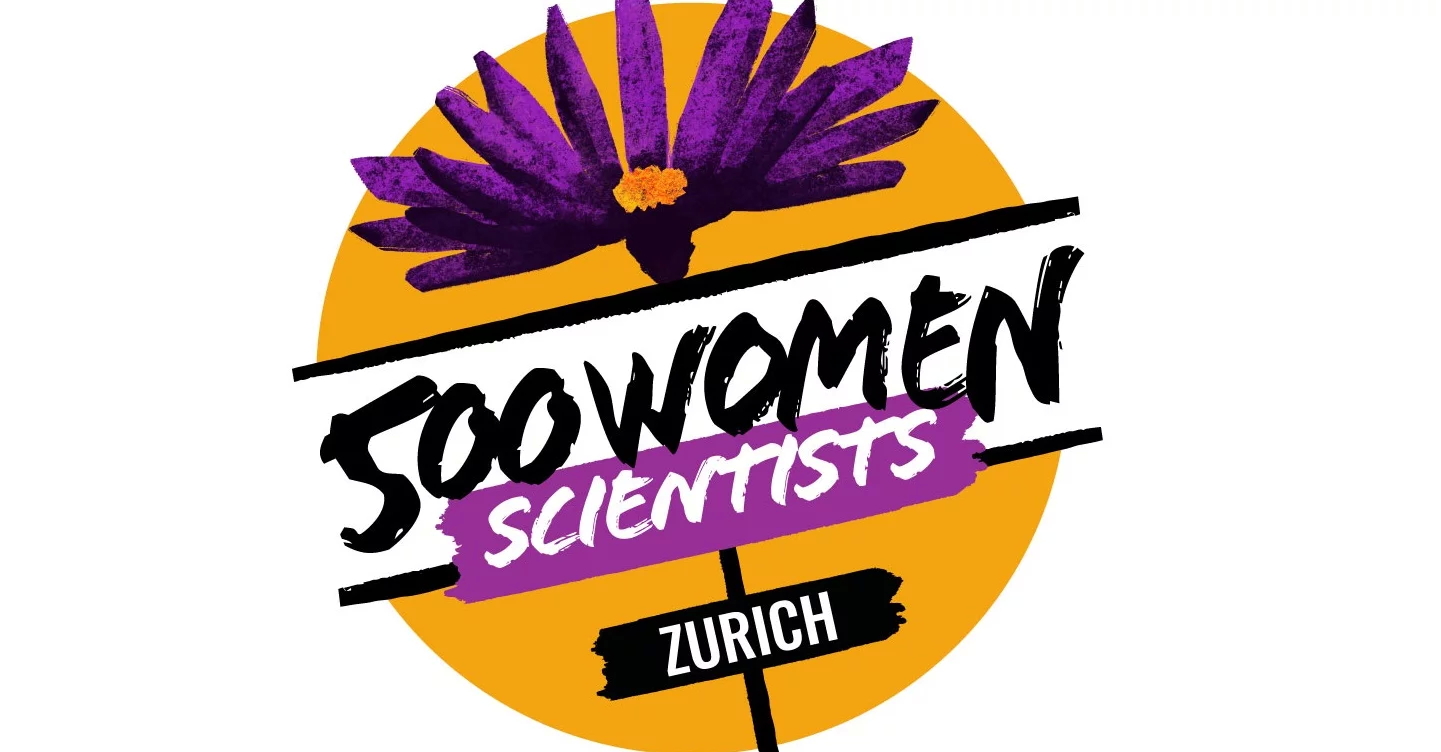"Study what inspires you!"
The top-scoring 100 girls in the Kangaroo mathematics competition were invited to spend a day exploring ETH Zurich, experimenting in labs and meeting like-minded people.
Every year in March, the Kangaroo mathematics competition tests the problem-solving skills of pupils from primary to secondary-level schools. Originally developed in Australia, the competition is now held in over 105 countries worldwide. To promote women in technical and scientific professions, the Department of Mathematics at ETH and the 500 Women Scientists Zurich association invite the top 100 seventh-grade girls in the Swiss competition to ETH every year. Named Kangaroo goes Science (KGS), the event was held for the first time in 2018.
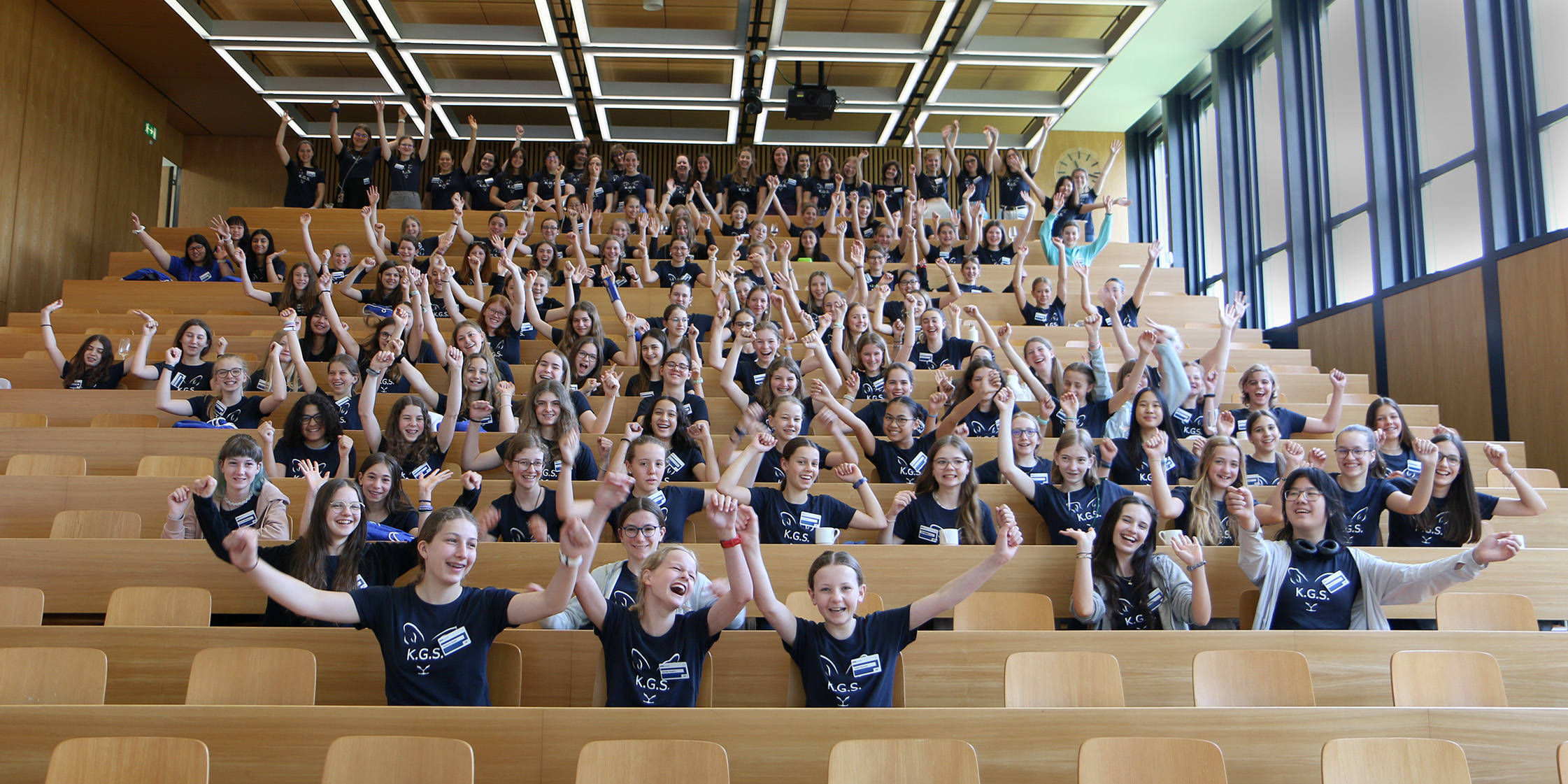
A programme for both parents and daughters
Last Thursday, ETH welcomed the girls and their parents to the Hönggerberg campus. In the morning, they were welcomed by ETH Rector Günther Dissertori and Kangaroo Switzerland President Meike Akveld and were then given a brief insight into the research of physics professor Rachel Grange. After an entertaining mathematical intermezzo by doctoral student Maybritt Schillinger, four female students talked about their path to ETH. The morning ended with a prize-giving ceremony at which the five best girls in this year's Kangaroo competition were honoured. After the girls had had lunch with ETH students who took on the role of "big sisters", the programme shifted from theoretical to practical: In small groups, the girls visited two laboratories where they explored different research topics through a series of fun tasks. Among other things, the girls built bridges, developed their own flood defence structures in a simulation channel and tested their problem-solving skills in maths workshops. In the meantime, their parents were treated to a tour of the ETH campus and learned more about the ETH study programmes and research activities in a presentation and Q&A session.
Some highlights of the KGS programme
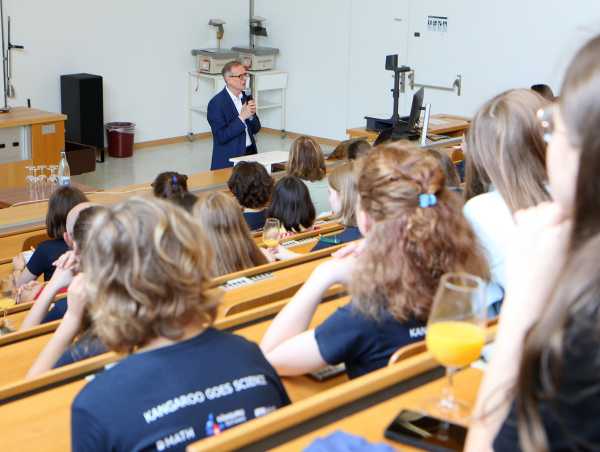
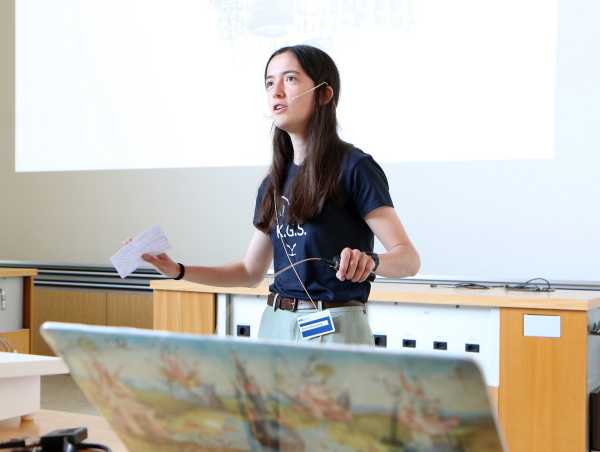
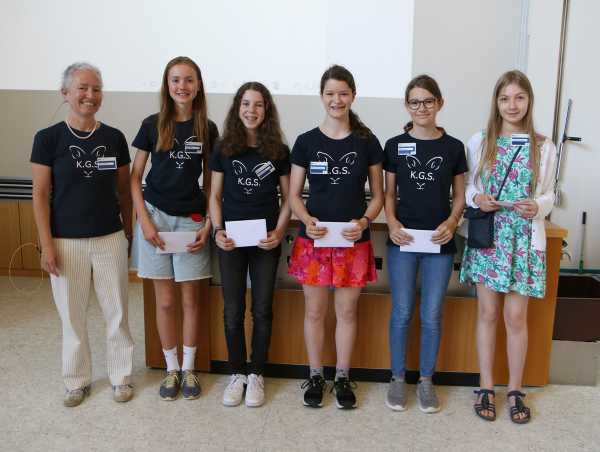
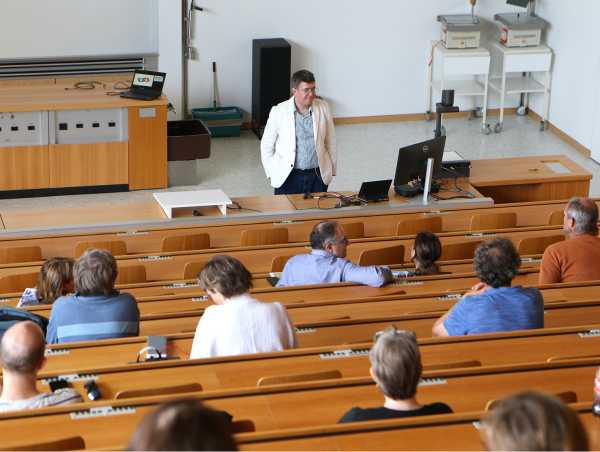
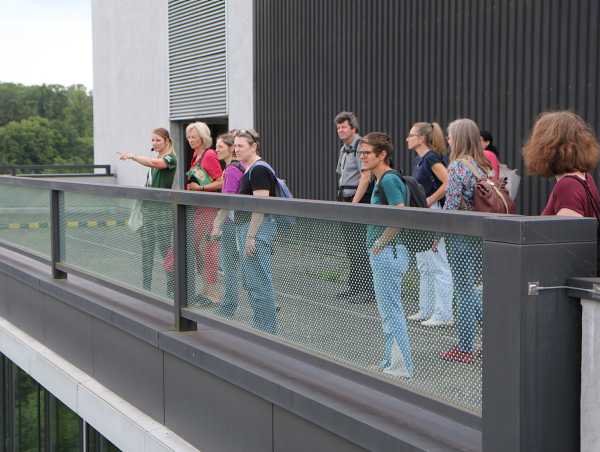
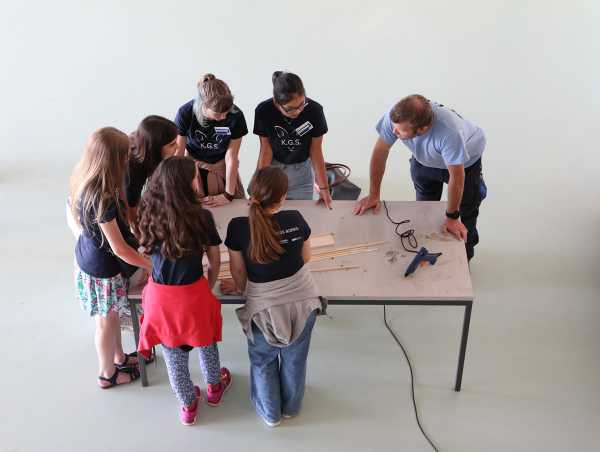
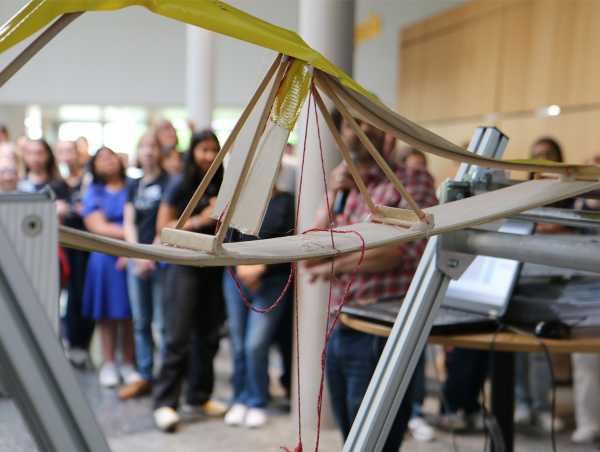
Inspiring minds at ETH
The Kangaroo goes Science event was initiated by Meike Akveld and environmental engineer Darcy Molnar. The two academics came up with the idea for Kangaroo goes Science while analysing Kangaroo test results. They noticed that while girls performed equally well as boys at primary-school age, boys tend to produced better results from secondary school onwards. "It’s so important to identify talented girls at an early age and to encourage them," says Molnar. The seventh grade is the ideal time to explore future options at ETH, as these girls will soon have to decide which modules they would like to pursue at secondary school. Molnar has experienced this decision-making process with her own daughter, and it’s not just interests and abilities that come into play. "Teenagers can come under a lot of pressure to choose the same modules as their friends – and those often don’t include mathematics and natural sciences for girls," explains the mother of three. Girls in particular may not have the self-confidence to choose mathematical and scientific modules, she continues.
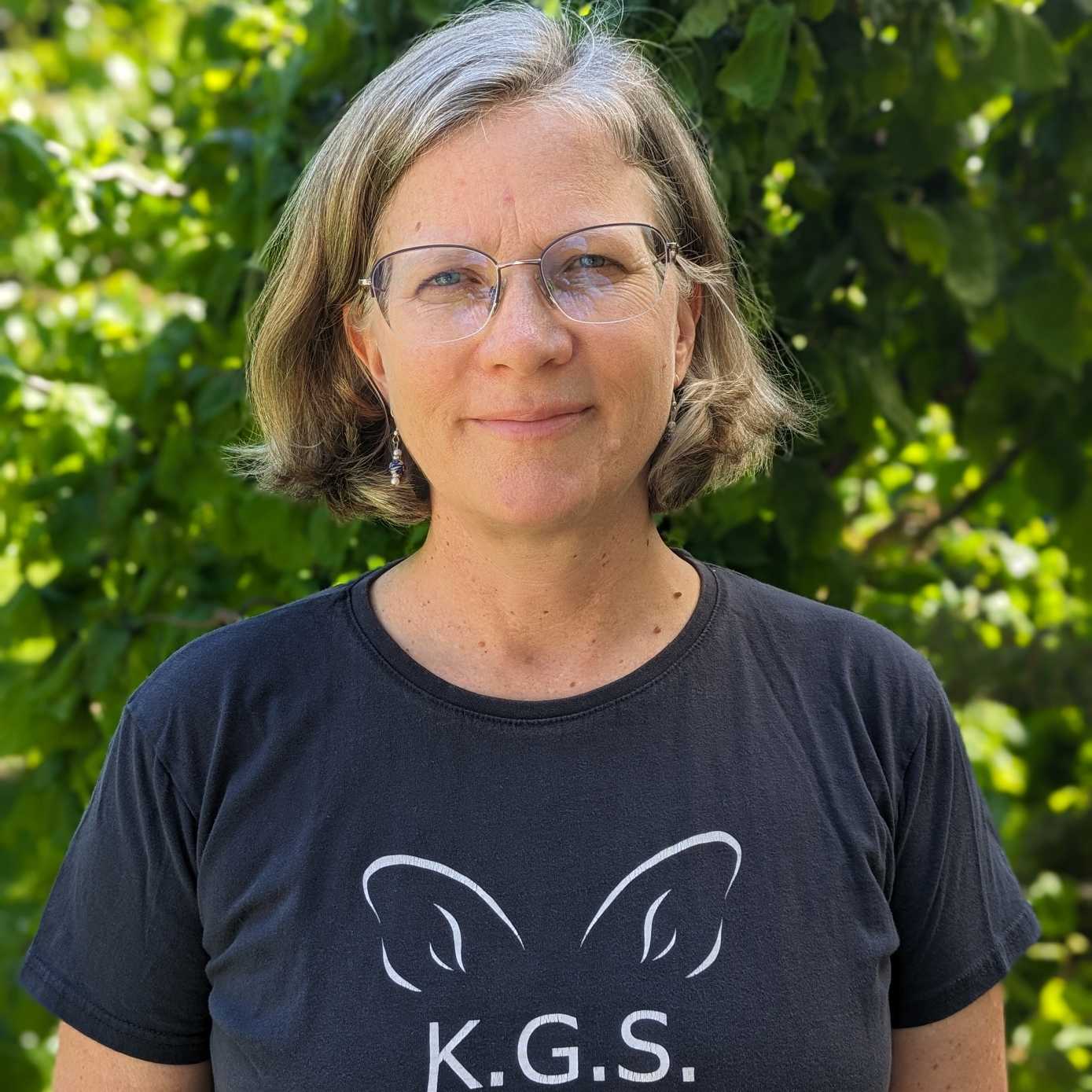
“It’s so important to identify talented girls at an early age and to encourage them”Dr Darcy Molnar
Parents play a key role
In such situations, parents can play a key role by encouraging their daughters and reinforcing their talents. This is why parents really appreciate having the opportunity to visit ETH together with their daughters. It allows them to discover more about ETH and experience what it means to study at a technical university. "Parents can better support their children if they understand what options are available," explains Molnar. In some cases, parents are not even aware that their daughters have performed well in the mathematics competition.
Reaching your goal with all your heart and soul
Follow your heart and study what you like – not what you think you should be studying. This is the message that Molnar wants to convey. A message that relates directly to her own personal path. Growing up in Cameroon, and in keeping with French tradition, she was encouraged in mathematics at an early age. At secondary school, a passionate teacher ignited her love of physics. Eventually, however, she enrolled at university to study international relations and languages. "I wanted to work in Africa later on and thought that was a smart choice," says Darcy, who was born in the United States. However, she quickly realised that she was not passionate about these subjects and switched to physics and mathematics.
And she went on to achieve her dream of working in Africa: After her Bachelor’s in Physics, she completed a Master’s in Water Resources Planning and Management and a doctoral degree in Hydraulic Engineering. She specialised in water management in developing countries and set up the Masters of Advanced Studies (MAS) in Sustainable Water Resources at ETH. "I just followed my heart and things worked out," she smiles. Today, she runs various projects in Ghana and Cameroon.
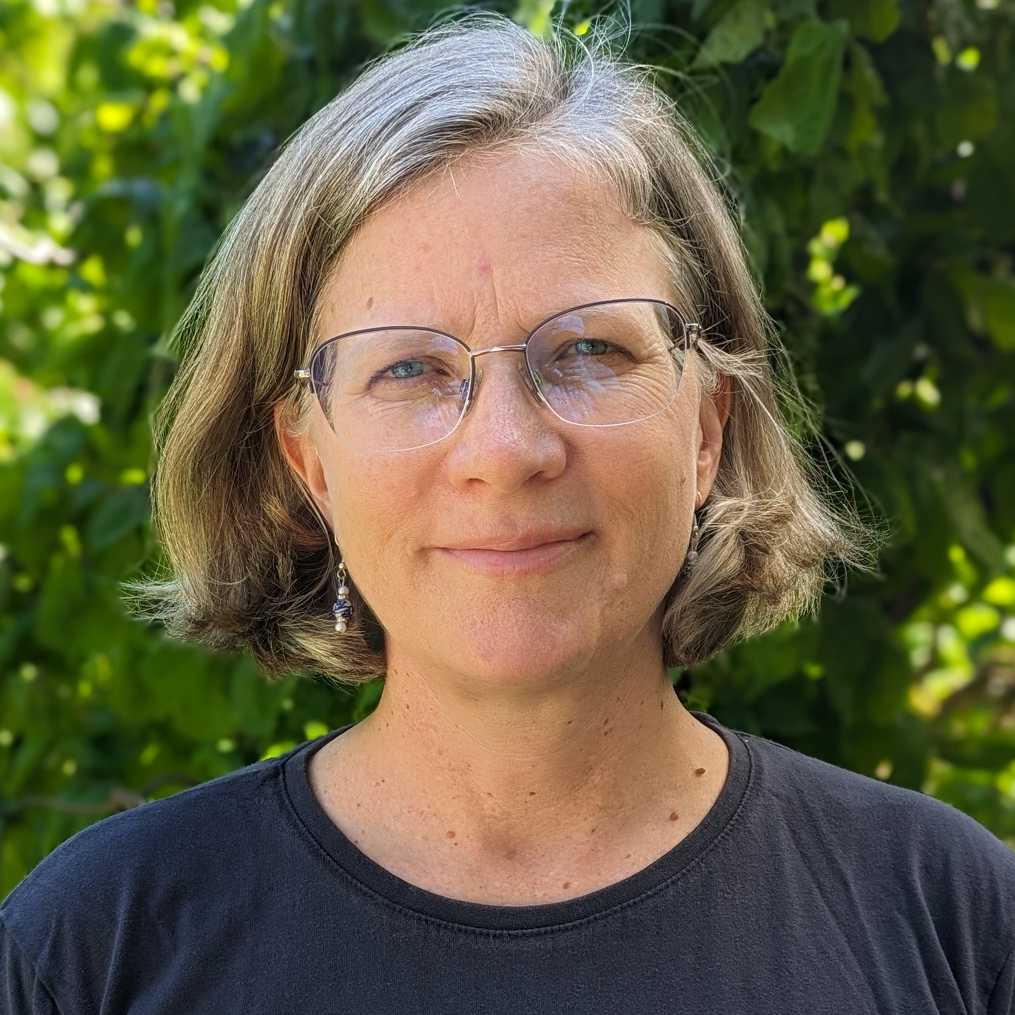
“I just followed my heart and things worked out”Dr Darcy Molnar
"It’s great to be good at something."
Back in her home country, the USA, more women study at scientific and technical universities than they do in Switzerland. Among other things, she attributes this to the school system: The USA places more emphasis on natural sciences and mathematics and encourages talented people to participate in science competitions. "We need to show children that it’s great to be good at something and that hard work pays off," she says. Molnar’s favourite moment of the eventful KGS day is when they give out awards to the top five girls in the competition. "It’s nice to see how happy the girls are for each other and how much they support each other," she smiles.
Girls who are enthusiastic about mathematics need to be encouraged and celebrated! Kangaroo goes Science is a wonderful opportunity to bring together girls and women with similar interests and strengths and show them that they too can follow their passions. The "big sister" system at the event proves that young undergraduate women can be role models. And what is more inspiring than someone who is passionate about their field?
